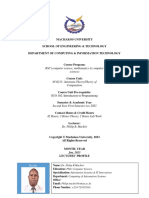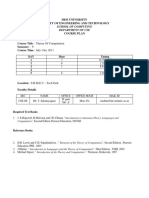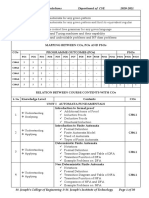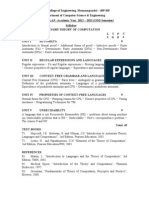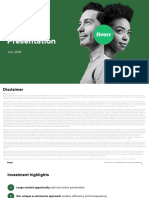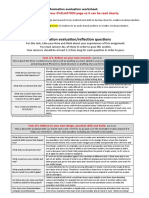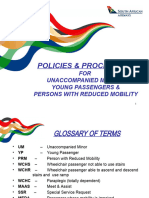0% found this document useful (0 votes)
41 views6 pagesCourseOutline TheoryofAutomata
The document outlines the course structure for 'Theory of Automata' (CS-3043) at the University of Management & Technology, Lahore, detailing credit hours, assessments, and course goals. It aims to familiarize students with formal languages and computational models, covering topics like finite automata and Turing machines. Additionally, it includes course learning outcomes and a lecture plan with assessments mapped to these outcomes.
Uploaded by
Nitasha Arooj JanjuaCopyright
© © All Rights Reserved
We take content rights seriously. If you suspect this is your content, claim it here.
Available Formats
Download as DOCX, PDF, TXT or read online on Scribd
0% found this document useful (0 votes)
41 views6 pagesCourseOutline TheoryofAutomata
The document outlines the course structure for 'Theory of Automata' (CS-3043) at the University of Management & Technology, Lahore, detailing credit hours, assessments, and course goals. It aims to familiarize students with formal languages and computational models, covering topics like finite automata and Turing machines. Additionally, it includes course learning outcomes and a lecture plan with assessments mapped to these outcomes.
Uploaded by
Nitasha Arooj JanjuaCopyright
© © All Rights Reserved
We take content rights seriously. If you suspect this is your content, claim it here.
Available Formats
Download as DOCX, PDF, TXT or read online on Scribd
/ 6
















